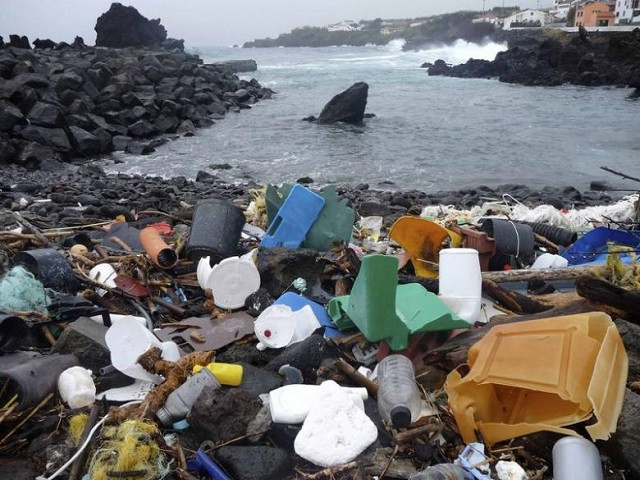8.3b tonnes of plastic causing 'near permanent contamination of natural environment'
Seven billion tonnes of plastic waste generated in 2015 but only 9% recycled

PHOTO: REUTERS
Findings of the first global analysis of mass-produced plastics found that plastic had outstripped most man-made materials and threatened a “near permanent contamination of the natural environment,” the Guardian reported.
The study was conducted by US academics who found the total amount of plastic to be produced was equal to the weight of one billion elephants. The study further found that the plastic will last for hundreds or perhaps even thousands of years.
Campaigners warned that production is expected to accelerate over coming decades and create an environmental crisis.
Greener Environment: VC opens tree plantation campaign
The head of the project, Roland Geyer, from the University of California and Santa Barbara, said: “We are increasingly smothering ecosystems in plastic and I am worried there may be all kinds of unintended, adverse consequences that we will only find out about once it is too late.”
According to the report, when plastic was first mass produced in the 1950s a total of two million tonnes was manufactured, which has risen to 8.3 billion in 2017 and is further expected to rise to 34 billion by 2050.
Roland also addressed his concerns about the impact of plastic pollution on land-based ecosystems. "There is much more attention paid to how plastics are interacting with marine organisms but there is much, much less known about how plastics interact with terrestrial organisms – I would suspect there is something equivalent going on and it might actually be worse.”
CPEC and the environment: good, bad or ugly?
Meanwhile, another study found that the growth in plastic production is largely driven by packaging industries and single-use containers as well as bottles and wrapping paper.
Roland also pointed out that “roughly half of all the steel we make goes into construction, so it will have decades of use – plastic is the opposite.”
He added that "if you take the 8.3bn tonnes of plastic and spread it out as ankle deep waste – about 10 inches high – I calculated it could cover an area the size of Argentina with it. That is the world’s eighth largest country."
The study also found that out of the seven billion tonnes of plastic waste generated in 2015, only 9% of it was recycled, 12% incinerated and 79% of it accumulated in landfills or the environment.



















COMMENTS
Comments are moderated and generally will be posted if they are on-topic and not abusive.
For more information, please see our Comments FAQ